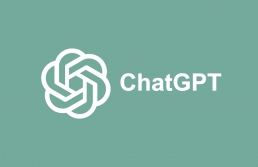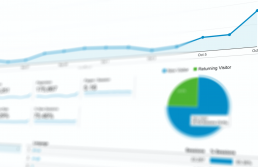Exploring the Power & Potential of ChatGPT
In today’s digital age, artificial intelligence (AI) has become an integral part of our lives, revolutionising various industries and enhancing human-machine interactions. One remarkable advancement in the field of AI is ChatGPT, an innovative language model developed by OpenAI. In this blog post, we will explore its capabilities, potential applications, and the impact it has on shaping the future of conversational AI.
What is ChatGPT?
ChatGPT is an AI language model that leverages deep learning techniques to generate human-like responses in a conversational manner. It is part of the GPT (Generative Pre-trained Transformer) family, which has made significant strides in natural language processing (NLP). Trained on massive amounts of text data, ChatGPT is designed to understand and generate coherent and contextually relevant responses, making it ideal for engaging in dynamic conversations.
Understanding the Architecture:
The underlying architecture of ChatGPT is built upon transformer models, which have proven to be highly effective in various NLP tasks. Transformers are neural networks that process input data by paying attention to different parts of the text, enabling the model to grasp the relationships and meaning between words and phrases. This attention mechanism allows ChatGPT to capture long-range dependencies and produce more coherent responses.
Training and Fine-Tuning:
Training ChatGPT involves pre-training and fine-tuning stages. During pre-training, the model learns from a large corpus of publicly available text from the internet. It familiarizes itself with sentence structures, grammar, and contextual cues. Fine-tuning is the subsequent stage, where the model is further trained on more specific data, including demonstrations and comparisons, to refine its responses and ensure a more controlled output.
Applications of ChatGPT:
ChatGPT has a wide range of applications across multiple domains. Here are a few notable examples:
1. Customer Support: ChatGPT can be employed as a virtual assistant, capable of understanding and addressing customer queries in real-time. It enables businesses to provide instant and personalized support, enhancing customer satisfaction and streamlining operations.
2. Content Creation: Writers, bloggers, and content creators can leverage ChatGPT as an AI writing companion. It assists in generating ideas, refining drafts, and offering creative suggestions, thereby boosting productivity and overcoming writer’s block.
3. Language Learning: ChatGPT can serve as an interactive language tutor, engaging learners in conversations, providing contextual explanations, and facilitating language practice. It adapts to individual learning styles and can offer tailored guidance to learners of various proficiency levels.
4. Personalized Recommendations: By understanding user preferences and historical data, ChatGPT can offer personalized recommendations for products, movies, books, and more. This enhances the user experience and helps businesses cater to individual needs effectively.
The Ethical Considerations:
As with any AI technology, there are ethical considerations to address. ChatGPT’s responses are based on patterns learned from its training data, and it may inadvertently exhibit biases or generate inappropriate content. OpenAI acknowledges these challenges and strives for ongoing improvements to mitigate such issues through research, community engagement, and feedback mechanisms.
Conclusion:
ChatGPT represents a significant milestone in conversational AI, pushing the boundaries of human-machine interaction. Its ability to understand and generate human-like responses opens up numerous opportunities for enhanced customer experiences, creative collaborations, and personalized assistance. While challenges remain, the continuous advancements in the field, coupled with responsible development practices, ensure that ChatGPT will continue to shape the future of conversational AI, making interactions with machines more seamless and natural than ever before.
The Future of Artificial Intelligence: Trends & Predictions
Artificial Intelligence (AI) has become one of the most transformative and disruptive technologies in recent years, with the potential to revolutionise virtually every aspect of human life. From autonomous cars and smart homes to personalised medicine and predictive maintenance, AI is already changing the way we live and work.
Here are just some of the latest trends and predictions for the future of artificial intelligence.
NLP
The Language of the Future Natural Language Processing (NLP) is not just for language geeks anymore. AI algorithms can now understand and interpret human language better than ever before. In the future, we might be chatting with bots that understand our jokes, our sarcasm, and our emotions. Imagine Siri or Alexa telling you a joke that actually makes you laugh out loud.
Doctor AI
The Health Revolution Gone are the days of relying solely on human doctors for medical advice. AI-powered diagnostic tools can now help identify diseases and make accurate diagnoses. In the future, we might even see robots performing surgeries and delivering personalized medicine. Just make sure you don’t accidentally confuse your doctor with your Roomba!
Doctor AI
Explainable AI: The Secret Decoder Ring Ever wonder what goes on inside an AI system? With Explainable AI (XAI), we can finally understand how AI systems make decisions. In the future, we might even see AI systems that can explain their actions in plain English (or any other language). No more confusion or suspicion, just clear and straightforward answers.
Doctor AI
Smart Learning: School of the Future AI-powered education is no longer a dream but a reality. With personalized learning experiences and intelligent tutoring systems, students can now learn at their own pace and level. In the future, we might even see virtual assistants that help students with homework and study tips. No more nagging parents or teachers, just a friendly AI tutor.
Doctor AI
Autonomous AI: The Rise of the Machines The Terminator might be closer than we think! Autonomous AI systems are already making waves in industries such as transportation, manufacturing, and logistics. In the future, we might see self-driving cars, drones, and even robots that can perform tasks without human intervention. Just don’t forget to charge your robot army before they take over the world!
Doctor AI
AI + Emerging Tech: A Match Made in Heaven AI is not the only hot technology in town. AI is already being integrated with other emerging technologies such as blockchain, edge computing, and the Internet of Things (IoT). In the future, we might see AI-powered smart homes that can adjust to our preferences automatically or even AI robots that can help with household chores (please, sign me up!).

Introducing Google Analytics 4 (GA4)
Google Analytics 4, also known as GA4, is the latest iteration of Google's web analytics platform. It is a comprehensive, AI-powered analytics solution that provides businesses with valuable insights into how their websites and apps are performing.
In this blog post, we'll take a closer look at what GA4 is, its key features, and how it differs from previous versions of Google Analytics.
What is Google Analytics 4?
GA4 is a next-generation analytics platform that provides businesses with a more robust and in-depth understanding of their data. It offers a range of new features, including AI-powered insights, improved user tracking, and a new event-driven data model that provides a more complete picture of user behavior. The platform also integrates with other Google products, such as Google Ads, to provide businesses with a more comprehensive understanding of their digital presence.
Key Features & Differences
AI-Powered Insights. GA4 uses AI algorithms to analyse data and provide businesses with insights into their website and app performance. This includes predictions about future trends and behavior, as well as recommendations for improving performance.
Improved User Tracking. GA4 provides businesses with a more complete understanding of their users, including their location, device, and behavior. This information can be used to create personalised experiences and improve user engagement.
Event-Driven Data Model. GA4's event-driven data model provides a more complete picture of user behavior by tracking specific actions and interactions on a website or app. This information can be used to understand user behavior, improve the user experience, and increase conversion rates.
Integrated with Google Ads. GA4 integrates with Google Ads, allowing businesses to see the impact of their advertising campaigns on website and app performance.
Easy to Use. GA4 is designed to be easy to use, with a user-friendly interface and intuitive navigation. This makes it accessible to businesses of all sizes, regardless of their technical expertise.
To conclude, Google Analytics 4 is a powerful, AI-powered analytics platform. Whether you're a small business or a large organisation, GA4 provides the tools you need to understand your users and improve your digital presence.
How To Manage Mental Health When Working From Home
Working from home can be a great way to get work done, but it can also be lonely. Isolation is a common problem for remote workers and can negatively affect mental health.
Here are 5 steps that can help you work productively and enjoy your time away from the office without feeling isolated or stressed while working remotely;
1. Create A Work Routine
Having a work routine that keeps you focused and entertained is important. You'll better understand and manage your work by establishing a regular schedule.
In addition, taking some time for yourself each day will help combat boredom or lack of enthusiasm. Ensure you have everything necessary, including distractions, to prevent feeling lonely or bored at work. And last but not the least, make sure you're happy with your current position!
2. Connect With Friends And Family
Keeping in touch with friends and family is essential, no matter where you are in the world. There are many ways to connect in today's digital age - from online communities to social media platforms.
By joining relevant groups or forums, you can get involved with people who share your interests and passions. You could also try speaking on the phone with your loved ones once a week (or even more often!).
3. Set Boundaries On Work Time
It is often tough to balance work and personal time when working from home. However, setting work time boundaries is essential to avoid feeling overwhelmed and stressed out. Setting realistic goals for yourself is also important, as it can take some time before you adjust completely. Be patient while working remotely - the effect will be worth it!
4. Get Outside For Exercise
One of the best ways to combat loneliness is by getting physical. Schedule time each day to go for a walk, take a yoga class, etcetera. Additionally, get creative and find ways to get out of the house - go for a walk in your neighbourhood or explore nearby parks. Spending time outdoors will help you connect with nature and even boost your mood!
5. Speak Openly About Your Feelings
Mental health issues are a big taboo and often go unreported. However, by speaking openly about them, we can break the silence and help others who might be struggling in the same way. It's important to have a support system in place - friends, family or online communities - when mental health problems arise.
These networks of people will offer emotional support as well as practical advice. They can also provide an environment where you feel heard and understood. There is no one-size-fits-all approach to dealing with loneliness; however, it's an ongoing process that requires patience, understanding and courage.
But by breaking the ice and opening up about what we're feeling, we might find kindred spirits who understand us better than anyone else could!
Conclusion
Many people work from home to save money or for the convenience of not having to commute. However, working from home can also be lonely. Following these simple steps can increase your mental health and help you enjoy your work-from-home life even more!
Top SEO Trends In 2021
Search engine optimisation (SEO) has been evolving with each passing year. The global pandemic has highly affected every industry, including the internet. SEO has witnessed great changes over the past few years. In this article, we will explore the expected SEO trends in 2021.
Artificial Intelligence
Artificial intelligence (AI) has been playing a vital role in SEO for a while now, and it will have the same importance in 2021 as well. For example, the RankBrain algorithm, which was released a few years ago by Google, has immense importance when it comes to Google’s ranking factors for search engine results pages (SERPs) results.
Greg Corrado, the one who developed the RankBrain algorithm indicated that it will improve with time. This improvement with time will keep AI as a top SEO trend to follow for 2021.
SEO experts suggest working on factors like click-through rate, backlinks, readability, and on-page SEO to optimise your website as per this algorithm.
Voice Search
With the innovations like Google Assistant, Apple’s Siri, and Amazon’s Alexa, voice search technology has got a whole new dimension. People are preferring voice search options over traditional methods.
Voice search optimisation will be a top trend for SEO in 2021. The expert will have to work more on voice search keywords. It will include the Identification of longer phrases that people use in everyday conversation. Voice searches perform better with longer and more natural-sounding phrasing. That's why people usually speak more words while voice search as compared to writing fewer words in traditional search.
Mobile-Friendliness
By 2025, nearly 73% of the total internet users will access the internet via mobile devices. Keeping this in mind, Google rolled out mobile-first indexing, which means that the search engine looks primarily at the mobile version of a website rather than the desktop version. This shows how much the Mobile-Friendliness will be impactful for the year 2021 and so on.
You have to make the UI of your website more responsive to ensure that Google can crawl your URLs. For this purpose, make sure you don’t have a “disallow directive” in place. Alongside this, you also need to use the same meta robots tags on the desktop and mobile sites as well.
Content according to Google EAT Principle
Content quality has its critical value for ranking success as per Google. But what does “quality” mean to Google? Well, it's pretty straight forward, just refers to the EAT principle: expertise, authoritativeness, and trustworthiness. These factors help in determining the content quality of any web page.
There are a couple of ways to ensure quality content. First, you need to understand what type of content and content format your users want. Second, create content that fits the format that your users prefer, with the help of search intended research. Apart from this, always use the appropriate top-level domain according to your niche.
Long-Form Content for Improved SERPs
According to various reports, long write-ups of 3,000-plus words get three times more traffic and 3.5 times more backlinks than articles of an average word count of 901 to 1,200 words. These staggering figures compel the website owners to put more long-form content to achieve higher search rankings. However, as discussed in the previous point, quality content is equally important. Breaking your content into multiple precise headings and subheadings can help you out in this regard.
You can use a combination that suits you best for your SEO needs.
Wordpress.com vs Wordpress.org. What's The Difference?
If you're just getting started with creating a website using WordPress, you may have come across the terms WordPress.com and WordPress.org. While both platforms have the same name and offer a similar content management system (CMS), they are quite different in terms of functionality, features, and flexibility.
This blog post will explore the differences between the platforms and help you decide which one best fits your needs.
WordPress.com
WordPress.com is a free, cloud-hosted platform that allows users to create a blog or a simple website without the need for any technical skills. It's owned and operated by Automattic.
This platform provides users with a simplified version of WordPress that doesn't require any coding or web development knowledge. It offers a range of free and paid templates (called themes) that can be customised to create a unique look and feel for your site. It also provides a range of plugins to add functionality to your site, such as contact forms, galleries, and social media integration.
One of the main benefits of using the .com platform is that it's free. It also includes hosting, so you don't need to worry about finding a hosting provider. However, the free version does have some limitations, such as not being able to use your own custom domain name, limited storage space, and limited access to plugins and themes.
WordPress.org
WordPress.org is the self-hosted version of WordPress that you can download and install on your own web hosting server. It's also free to use and offers much more flexibility and control.
With this platform, you have complete control over your website. This includes the ability to customise the appearance of your site with any theme you like and add any plugin you need to enhance its functionality. You can also use your own custom domain name. Additionally, you have unlimited storage space, which means you can add as much content as you want without worrying about running out of space.
However, with this greater flexibility comes greater responsibility. You'll need to find a hosting provider and manage your site's security, backups, and updates. This can be overwhelming for someone who is just starting out with building a website.
Which one is right for you?
If you want to create a personal blog or a simple website without any technical hassle, try WordPress.com. It's free, easy to use, and takes care of hosting. But for a more complex website or complete control over your site, choose WordPress.org. It requires more technical knowledge, but gives you more flexibility and control.






